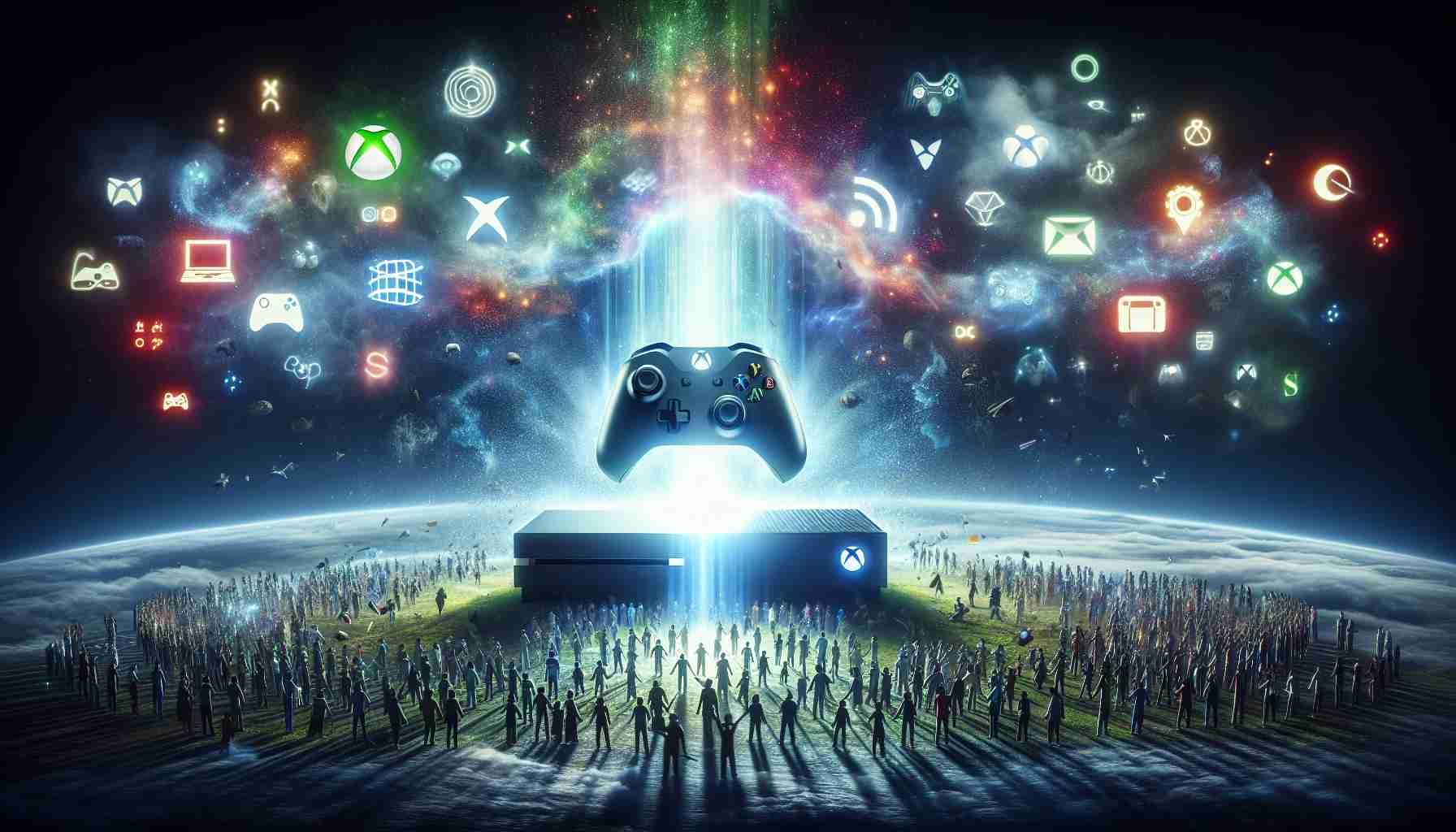The Future of Xbox and Cross-Platform Gaming
Microsoft’s recent acquisition of Activision-Blizzard has solidified Xbox’s position as the largest third-party game publisher ever. Following this change, Phil Spencer, head of Xbox, stirred up excitement in a recent interview by sharing insights into the platform’s direction. He emphasized a significant shift, stating that future Xbox games would be available on other systems, including Nintendo and PlayStation.
During an engaging twenty-six minute discussion on Gamertag Radio, Spencer expressed a desire for players to enjoy Xbox games across various devices. He highlighted that while Xbox aims to deliver top-tier experiences on its own hardware, the goal is also to maximize accessibility for gamers everywhere.
The history of consoles is pivotal in understanding this transition. Traditionally, exclusive titles have driven console sales, yet this model may be evolving. Spencer affirmed Xbox’s commitment to collaboration, mentioning successful partnerships with Nintendo and Steam.
Contrary to fears that Xbox might face a fate similar to Sega, which transitioned to third-party development after its console decline, Microsoft’s robust financial standing ensures a different trajectory. As the gaming landscape shifts, the challenge lies in attracting players to Xbox hardware amidst fierce competition from future consoles like the anticipated “Switch 3” and PlayStation 6.
In this new era, will Xbox redefine its identity from hardware-centric to a rich ecosystem of games and services? Only time will tell.
The Crossroads of Collaboration: Implications for Gaming’s Future
The evolution of cross-platform gaming, as championed by Xbox’s recent strategies, signifies a transformative moment for the gaming industry that could reverberate through society and culture. By offering titles across various platforms, Microsoft is redefining the concept of exclusivity and fostering a more inclusive gaming community. This paradigm shift not only challenges the traditional console wars but also democratizes access to quality gaming experiences, allowing players from diverse backgrounds to engage in a shared culture.
Moreover, the economic ramifications are profound. With an emphasis on cloud gaming and subscription models, we could witness a consolidation of the gaming market that enhances revenue streams for developers, while simultaneously lowering barriers for entry among consumers. As ownership shifts towards services rather than standalone products, the global economy could see a new influx of players contributing to both the gaming sector and ancillary industries.
However, it is essential to consider potential environmental impacts. As gaming technology evolves, the demand for data centers to support cloud gaming increases, sparking concerns over energy consumption and carbon footprints. Balancing the thrill of expansive, interconnected gameplay with eco-conscious practices will be imperative for industry leaders going forward.
In this landscape, the long-term significance of cross-platform gaming might create a shift toward a more sustainable future in gaming, where the emphasis is not solely on hardware sales, but on collaboration, accessibility, and community. The onus is on major players like Microsoft to lead by example, demonstrating that the future of gaming can thrive through responsible practices and shared enjoyment.
The New Era of Xbox: Embracing Cross-Platform Gaming and Expanding Horizons
The Future of Xbox and Cross-Platform Gaming
As Microsoft makes bold moves in the gaming industry, particularly through its acquisition of Activision-Blizzard, the landscape of gaming is set for a transformation. The head of Xbox, Phil Spencer, has revealed an exciting vision for the future, emphasizing Xbox’s dedication to cross-platform gaming. This shift aims to provide gamers with the freedom to enjoy Xbox titles across various devices, including Nintendo and PlayStation systems.
Trends in Cross-Platform Gaming
Cross-platform gaming has gained significant traction in recent years, driven by a growing demand for accessibility and community among players. The success of titles like “Fortnite” and “Call of Duty” has demonstrated the potential of cross-play features, fostering a united gaming experience among different systems. Spencer’s announcement suggests a strategic pivot for Xbox, aligning with these trends and addressing the desires of today’s gaming community.
Innovations and Features
The future of Xbox may include several new features aimed at enhancing player engagement and experience:
– Cloud Gaming Enhancements: Xbox’s cloud gaming technology could evolve, offering seamless play across devices without the need for dedicated hardware.
– Game Pass Expansion: The popular Xbox Game Pass may expand to encompass titles from different platforms, encouraging more players to subscribe and explore a vast library of games.
– Social Connectivity: Improved social features may allow players to connect and compete with friends regardless of the console they use.
Pros and Cons of Cross-Platform Play
Pros:
1. Increased Player Base: Cross-play expands the player pool, allowing for more match options and a healthier game community.
2. Enhanced Longevity of Games: Games can maintain relevance and value longer when players from different platforms can interact.
3. Greater Accessibility: Players can enjoy their favorite games with friends, irrespective of the systems they own, removing barriers created by exclusivity.
Cons:
1. Technical Challenges: Ensuring compatibility across diverse systems raises technical hurdles that developers must address.
2. Balancing Gameplay: Different hardware capabilities may lead to imbalances in gameplay experiences.
3. Potential for Fragmentation: While cross-play can unite players, it could also fragment communities through platform-specific advantages or experiences.
Limitations of Current Cross-Platform Strategies
While the future looks promising, there are limitations to current cross-platform strategies. Developers often face challenges in ensuring consistent performance across platforms. Additionally, certain franchises may maintain exclusivity due to brand strategies, limiting full access to players who wish to play on different systems.
Market Analysis and Competition
As Xbox embraces this inclusive model, it also faces stiff competition. The forthcoming releases of systems like the rumored “Switch 3” and the next PlayStation are factors to consider in this evolving landscape. The ability of Xbox to attract players to its hardware will depend largely on how well it can offer an appealing ecosystem that supports cross-platform play without compromising the quality of its exclusive titles.
Predictions for the Future
Looking ahead, predictions suggest that:
– Increased Collaborations: Partnerships among console makers may become more common, leading to more shared experiences and services.
– Growing Subscriptions: The proliferation of subscription models for accessing games shouldn’t just involve Xbox; expect other platforms to explore similar strategies.
– Shifting Market Dynamics: The competitive landscape may shift as players prioritize the breadth of gaming options over hardware loyalty.
Conclusion
As Xbox redefines its identity in this new era of gaming, the focus on cross-platform accessibility marks a significant shift in strategy. The future holds exciting possibilities for a more interconnected gaming community, characterized by robust partnerships and expanded access to games across diverse platforms. For updates and more information on Xbox’s initiatives, visit Xbox.



















